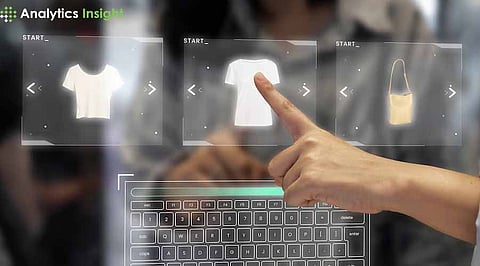

AI technology has become part of the luxury brand strategy to deliver improved customer experiences. Artificial intelligence implements changes to high-end fashion products, smart luxury shopping, and retail services through personalization features and intelligent design solutions. Luxury houses are investing in AI in luxury brands to maintain their market leadership position.
Several advantages of AI enable brand companies to identify their customers' preferences. The system investigates shopping behaviors, social media actions, and purchased items. The collected data helps businesses produce product suggestions that match individual buyers.
The Louis Vuitton chatbot system delivers individualized fashion recommendations to its users.
AI technology on the Gucci platform allows users to discover new products through individual customer preference analysis. The innovations work to deliver shoppers unique and specialized shopping options.
AI technology assists luxury fashion technology in developing special products for their customers. Prada and Burberry's fashion trend analysis depends on artificial intelligence tools. This approach allows businesses to develop fashion styles that align with present customer preferences.
Certain brands offer their clients access to AI-powered customization services. Through Nike By You, customers can create sneakers that match their specific designs. AI identifies fashion choices based on what products customers have previously used or purchased. The high level of personalization provided by these systems guarantees limited availability of the products.
Substantial progress has happened in developing immersive online luxury shopping through artificial intelligence in retail. People who use virtual try-ons with augmented reality technology can view items before purchasing them.
Clients can virtually test their makeup selections through AI technologies provided by Chanel and Dior. With AR tools, Cartier enables online customers to evaluate virtually how their chosen pieces of jewelry align with their bodies. The new technology increases the interactive nature of shopping for luxurious goods.
Virtual assistants and AI-based chatbots are revolutionizing the delivery of customer updates. Through their platforms, customers receive swift service, including individualized suggestions.
Rolex, along with Hermès, implement AI chatbots that provide continuous support to their consumers. The bots supply customers with product details and availability information and present suggested styles. AI provides luxury customers with exceptional service delivery at all hours of the day.
AI technology enables luxury companies to handle inventory control alongside predictive customer demand forecasting. Such routines decrease business waste and achieve higher sustainability standards.
The AI system at Stella McCartney tracks the origins of materials and monitors ethical production standards. Artificial Intelligence technology at LVMH monitors supply chains through automated systems that help minimize carbon emissions in the manufacturing process. The above measures transform luxury products into more environmentally friendly versions.
AI is making luxury smarter and more special. Brands use it for personal shopping and virtual experiences. As tech grows, high-end product innovation and AI in luxury will grow, too.
Luxury shoppers will have even more personal and smooth experiences. AI is not just a trend—it's the future of high-end fashion and shopping.
